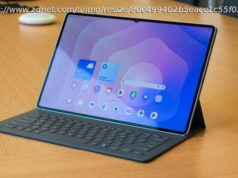Eye tracking support will be a huge help for people who can’ t use a mouse or keyboard.
Microsoft has incorporated eye tracking functionality into Windows 10, in order to make the operating system usable just by looking around the desktop as opposed to using a mouse.
The Eye Control feature, which is currently in beta testing in preview versions of Windows 10, boosts the operating system’s accessibility levels greatly, letting disabled people use their eyes to drive an on-screen mouse and keyboard for input (with text-to-speech capabilities, too) .
The caveat is that you will obviously need some kind of compatible eye tracking hardware, such as the Tobii 4C camera.
The system allows those with conditions such as amyotrophic lateral sclerosis (ALS) – which destroys the neurons that control muscle movement, but for most people, leaves the eyes unaffected – to operate a Windows 10 desktop environment.
Former NFL player Steve Gleason, who has ALS, contacted Microsoft back in 2014, requesting that the company look into developing technology that addresses some of the issues he faces in daily life.
Gleason said: “When I approached Microsoft three years ago, I asked them to help develop innovative technology programs that would allow people with disabilities to stay productive and purposeful.
“They agreed without hesitation. At that time, I had no idea they would continue expanding access throughout all of Windows 10. Having Eye Control in Windows 10 continues to bridge the gap between widely used technology and people with disabilities. It’s simply liberating.”
As mentioned, Eye Control is a beta feature right now, so you have to sign up to become a Windows Insider and download a preview version of Windows 10 in order to try it out. As with all capabilities in beta, it may be glitchy at this point.
As we’ ve seen recently, Microsoft is already on a big drive to enhance Windows 10 on the accessibility front with a raft of improvements arriving in the Fall Creators Update .






